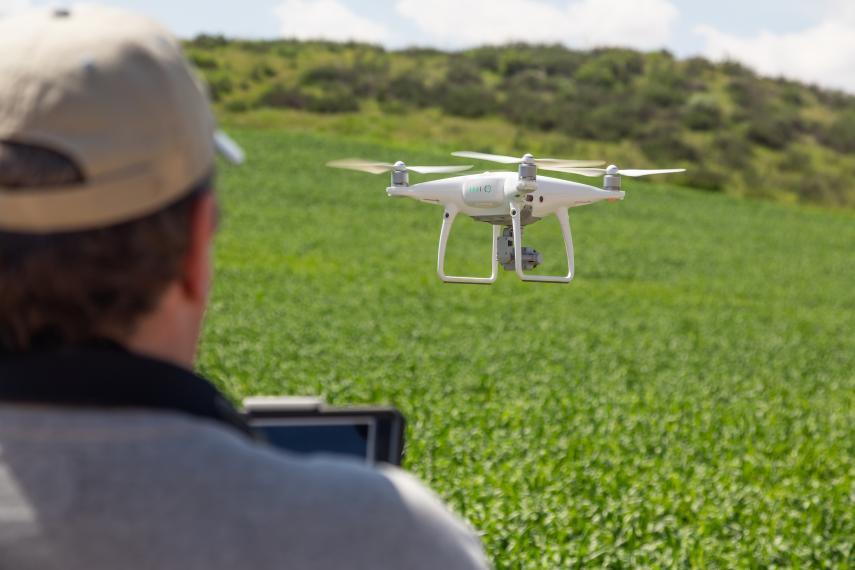Tech Meets Agriculture: Innovating the Future of Food Production

When you think about agriculture, your mind might immediately go to tractors, fields, and barns. But in today’s world, agriculture is far more high-tech than you might imagine. The future of farming isn’t just about growing crops—it's about applying cutting-edge technology, data science, and engineering to revolutionize how we produce food.
If you're interested in a STEM degree and love the idea of making a real-world impact, a degree in agricultural science could be the perfect choice for you.
Tech-Driven Agriculture: Growing More with Less
As the global population continues to rise, so does the demand for food. The challenge? How to grow more food on less land, using fewer resources while protecting the environment. The solution? Technology.
Agriculture today is driven by innovation—think precision farming, drones, robotics, and artificial intelligence (AI). Scientists and engineers are creating new ways to monitor crops, apply fertilizers more accurately, and even predict weather patterns to optimize growing conditions.
For example:
- Drones can survey vast fields, detecting areas that need water or nutrients, helping farmers make data-driven decisions that reduce waste.
- Robotics are being developed to automate tasks like planting and harvesting, making farming more efficient and less labor-intensive.
- AI and machine learning help analyze soil health, predict crop yields, and identify plant diseases before they spread.
- These innovations are reducing the environmental impact of agriculture by helping farmers grow more food using fewer natural resources, such as water and fertilizers. It’s about maximizing output while minimizing input—ensuring a sustainable future for food production.
Feeding the Future with Agricultural Science
Choosing a degree in agricultural science doesn't mean you're signing up to work on a farm. You're signing up to help solve some of the world's biggest challenges. Agriculture is at the heart of critical global issues like climate change, food security, and sustainability. With an agricultural science degree, you'll have the chance to develop technologies that will shape the future of food production, from lab-grown meat to vertical farming systems that grow crops in cities, using far less water and land than traditional farming methods.
You could find yourself working in:
- Genetics and biotechnology: Developing drought-resistant crops or engineering plants that can grow in less-than-ideal conditions.
- Renewable energy: Creating biofuels from agricultural waste, providing clean energy sources while reducing greenhouse gas emissions.
- Sustainability initiatives: Developing systems that recycle water, reduce pesticide use, and protect biodiversity.
- The agri-food industry is constantly evolving, and with it comes a wealth of opportunities for those with a passion for science and innovation. If you love technology, biology, chemistry, or engineering, agriculture offers an exciting and impactful career path that blends all these areas.
Be a Part of the Innovation
At universities like the University of Guelph, agricultural science programs are designed to prepare you for the future of farming—one that’s deeply intertwined with technology and innovation. You’ll gain hands-on experience working with cutting-edge tools and learn how to apply science and engineering to tackle real-world problems. Whether it’s improving food production methods, developing new agricultural technologies, or addressing the environmental challenges of today’s food systems, agricultural science puts you at the forefront of global change.
In a world that’s growing ever more reliant on technology, why not apply your passion for STEM to a field that’s essential for our survival? Agriculture is no longer about simply working on a farm—it’s about innovating the way we feed the world.
So, the next time you’re considering your options for a STEM degree, don’t overlook agricultural science. It’s where technology and nature meet to create the sustainable solutions of tomorrow.